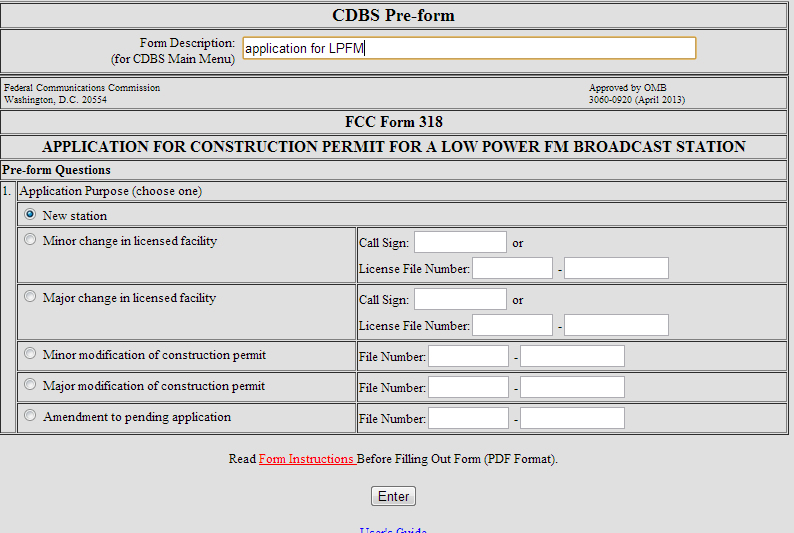Some time ago, I wrote extensively on the use of illegal FM transmitters by the Catholic Church across Ireland. The call then was for a better process of licensing by the BAI, both to regulate the FM band and to legalise these pirate radio broadcasts. The implementation of a Low Power FM (LPFM) licensing policy would eradicate these illegal broadcasts and provide listeners with confidence. When the hobby pirate radio stations began to appear in the 1970’s and early 1980’s, the then Department of Posts and Telegraphs were proactive in detecting, raiding and closing these stations. They were prosecuted under the 1926 Wireless Telegraphy Act but when that law became porous, it led to the proliferation of hundreds of pirate radio stations across Ireland. The 1988 Wireless Telegraphy Act closed the majority of pirate radio station across Ireland and significantly increased the penalties for illegal broadcasting up to €20,000 fines and/or two years in prison. These illegal services were replaced by legal, licensed, national, local, regional, institutional and community radio stations. The Broadcasting Authority of Ireland also annually issues temporary licenses to local communities, events and sporting organisations.
http://www.irishstatutebook.ie/eli/1988/act/19/enacted/en/print.html
Further infringements of the
1988 Wireless telegraphy Act have come to light that have been ignored by
ComReg and the BAI. As it was in the 1970’s, when the problem was ignored, it got
out of control and enhanced legislation was required. That is why we call on
the Government to immediately bring legislation to license LPFM stations.
The Covid pandemic has forced the entertainment industry to discover new ways to interact with their audiences. We commend this, and appreciate that these services provide employment, enjoyment and impact positively the mental welfare of a nation under the effects of restrictions. This however should not encourage entertainment groups to flout the law or disregard a licensing process, which can be cumbersome and expensive. A temporary license from the BAI will cost the operator approximately €750 - €1,000 per license.
Alan Hughes, the Ireland AM and Virgin Media presenter, produced and starred in the 2020 pantomime ‘Peter Pan’. Alan and his partner Karl Broderick have been stalwarts of the annual Christmas festivities for many years, providing top quality entertainment. Due to Covid restrictions, the in person theatre experience stopped but the Peter Pan panto found another way of bringing their extremely popular show to the public. With funding from the Department of Tourism, Culture, Arts, Gaeltacht, Sport and Media, the show became a big screen drive-in show at Malahide Castle.
The action was relayed on
a big screen for the drive-in audience while the in-car experience was relayed
via 93.7mhz FM. Despite the fact that the Government Department, led by Catherine Martin TD, in charge of
broadcasting funded the show, the transmitter used to broadcast on 93.7 was
illegal. No license had been sought from the BAI to broadcast on FM. The
response of the BAI was,
‘Panto.ie
did not apply for such a licence.’
A pirate radio broadcast was
funded by the Government and the taxpayer without oversight. This is the Irish State condoning and
financing pirate radio. The BAI, temporary license list for the period
documented a number of drive-in movie companies having sought and were awarded
licenses. An email to the BAI elicited this response,
Hi Eddie
Drive in movies require a contract with the BAI if they are using FM to provide audio to cars. The change in COVID regulations brought a premature end to the panto, so any illegal use of 93.7MHz was limited to a few days at most. We have granted temporary licences to a few drive in movie operators, but Panto.ie did not apply for such a licence.
Such illegal use of FM is an issue for ComReg, but the BAI does forward any information about such illegal broadcasts to ComReg.
Regards
The clarification from the BAI left no doubt that the transmitter used at the pantomime was illegal as no license had been sought as required under law. Government sponsored illegal broadcasting is a dangerous precedent to be setting. This once again demonstrates the need for new legislation to provide for Low Power FM licenses that would assist the entertainment industry and local communities.
I reached out for a comment from the Producers of the show but to date no reply has been forthcoming.
If you would like to support my work in preserving and presenting the history of Irish radio and archive as much broadcasting history as I can, then for the price of a cup of coffee (takeaway these days) you can financially support the work at https://ko-fi.com/irishbroadcastinghistory. Thank you. (Use the button at the top of the page to support)





No comments:
Post a Comment